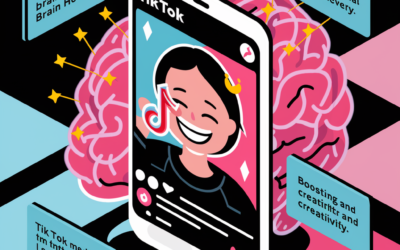If you're seeking therapy, hypnosis is an alternative approach that may help you achieve your goals. In the past, hypnosis was often viewed as an obscure and fringe technique. However, in recent years, it has gained more attention and acceptance within the mainstream healthcare industry. In this article, we will discuss what hypnosis is, how it works, and how it can be used in conjunction with online applications to enhance your therapy experience.
What is Hypnosis?
Hypnosis is a state of mind where an individual's focus and concentration are heightened. During hypnosis, the individual is often more receptive to suggestions and can more easily access their subconscious mind. Hypnosis is often used as an alternative approach to traditional therapy for those who are seeking to change their behavior, beliefs, or emotions.
How Does Hypnosis Work?
Hypnosis works by accessing the subconscious mind, which is the part of the mind responsible for our automatic behaviors, thoughts, and emotions. During hypnosis, the hypnotist will guide the individual into a state of deep relaxation, and then suggest changes to their subconscious mind. These suggestions may include positive affirmations, visualizations, or re-framing of negative thoughts and beliefs.
The Benefits of Hypnosis
Hypnosis can be used to treat a variety of issues, including anxiety, depression, addiction, chronic pain, and sleep disorders. It is often used as an adjunct to traditional therapy to enhance the effectiveness of treatment. The benefits of hypnosis include:
- Improved self-esteem and confidence
- Reduced stress and anxiety
- Improved sleep quality
- Reduced chronic pain
- Improved focus and concentration
- Reduced symptoms of depression
Types of Hypnosis
There are several types of hypnosis that can be used depending on the individual's needs and goals. These include:
Traditional Hypnosis
Traditional hypnosis involves an individual being guided into a state of deep relaxation, where they are more susceptible to suggestions from the hypnotist.
Ericksonian Hypnosis
Ericksonian hypnosis is a form of hypnosis developed by Milton Erickson, which focuses on indirect suggestions and metaphors to influence the subconscious mind.
Neuro-Linguistic Programming (NLP) Hypnosis
NLP hypnosis is a form of hypnosis that uses language and communication techniques to influence the subconscious mind. It is often used to help individuals overcome phobias, anxiety, and other emotional issues.
Hypnosis and Online Applications
Online applications have made therapy and hypnosis more accessible and convenient for individuals seeking treatment. Online hypnosis sessions can be done in the comfort of your own home and at a time that is convenient for you. Online applications can also provide additional support and resources to enhance your therapy experience. These include:
Guided Meditations
Guided meditations are a form of hypnosis that can be accessed through online applications. They often focus on relaxation, visualization, and positive affirmations to help individuals achieve their goals.
Self-Hypnosis
Online applications can provide tools and resources to help individuals learn self-hypnosis techniques. Self-hypnosis can be a powerful tool for individuals seeking to overcome anxiety, addiction, or other emotional issues.
Cognitive Behavioral Therapy (CBT) Applications
CBT applications can be used in conjunction with hypnosis to enhance treatment for anxiety, depression, and other emotional issues. CBT applications provide tools and resources to help individuals change their negative thoughts and behaviors.
Conclusion
Hypnosis is a powerful tool that can be used to enhance traditional therapy or as an alternative approach to treatment. Online applications have made hypnosis and therapy more accessible and convenient for individuals seeking treatment. Hypnosis and online applications can be used together to provide additional support and resources to individuals seeking to achieve their goals and overcome emotional issues. By accessing the subconscious mind, hypnosis can help individuals change negative beliefs and behaviors, leading to improved self-esteem, reduced anxiety, and improved overall well-being.
FAQs
-
Is hypnosis safe? Hypnosis is generally considered safe when performed by a qualified and licensed practitioner.
-
How many hypnosis sessions are needed? The number of sessions required can vary depending on the individual's needs and goals. Some individuals may see results after just one session, while others may require multiple sessions.
-
Can hypnosis be used for weight loss? Hypnosis can be used to help individuals overcome emotional eating and develop healthier eating habits. However, it should be used in conjunction with a healthy diet and exercise program.
-
Can I be hypnotized online? Yes, online hypnosis sessions can be just as effective as in-person sessions. It is important to choose a licensed and qualified practitioner.
-
Is hypnosis covered by insurance? Some insurance companies may cover hypnosis for specific conditions, such as chronic pain or smoking cessation. It is important to check with your insurance provider to see if it is covered.
If you're feeling anxiety there is also online anxiety therapy from licensed counsellors which can help with triggering emotions and reactions you might still have about your ex. There are applications that have meditations and audios to help you sleep, relax, get over stuff. One to consider is the headspace app because they have good content and a free trial so you can checkout their goods and experience what works best for you.























